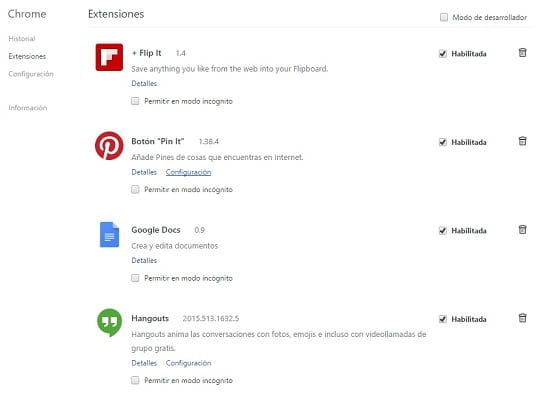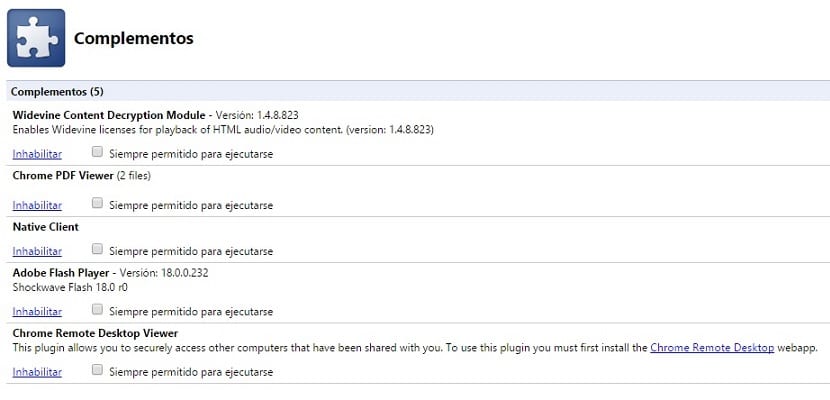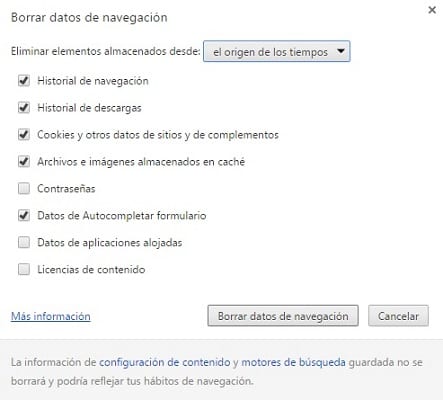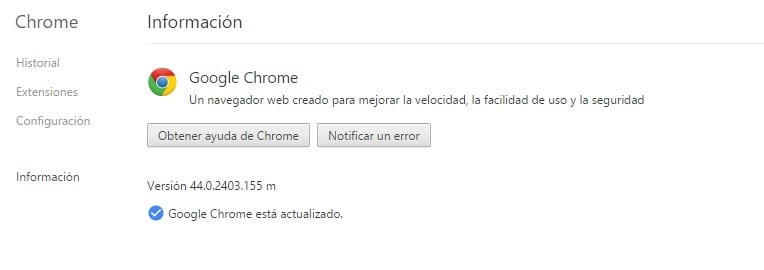
Google Chrome It is one of the most popular and used web browsers of the many available on the market, which are not exactly few. This software developed by Google offers the user a large number of very interesting options and functions, although requires that from time to time we perform a "general maintenance" of the same so that this one does not slow down to a great extent and turn our walks through the network of networks into a real ordeal.
Whether you use a Google Chrome that is very slow or not, today we want to offer you this article in which we are going to show you 6 simple tips to make the Google web browser work at full speed and without it being a headache .
As I often say, get a pencil and paper or a device where you can take notes because almost certainly you will need to write down all the interesting information that you are going to read next.
Remove extensions you don't use
One of the main reasons Google Chorme slows down excessively is due to the huge amount of things that we are installing. It is normal to install an extension or that some programs that we install add a plugin, but what should not be normal is that we have more than 20 extensions installed, for example.
Do a review of all the additions that you have installed to your web browser and eliminate all those that you do not use, to try to leave it as close as possible to the original point of installation of Google Chrome. Surely, in a short time you will begin to notice how you can navigate and work much faster.
To access the extensions that you have installed only you must enter the Chrome options and select the option "More tools". There you will find the option to check which extensions you have installed and you will also find the possibility of eliminating or deactivating them.

To disable an extension, just uncheck the corresponding box. To delete it, you just have to press the trash can icon that will appear next to it.
Remove plugins that are not necessary
The plugins They are installed most of the time by programs, without your noticing on many occasions, and they allow you to use certain browser functions, consuming resources of course.
To check the plugins that you have installed on your computer, just open a new browser tab and type Chrome: // plugins. From here you can locate the programs that you do not use and therefore disable those plugins that are only "bothering" you

Of course, be very careful with what you delete or disable, so that after a few minutes you may regret it.
Eliminate the trace that you leave
Google Chrome is saving a complete list of all the sites you are visiting in case at a certain moment you need to visit one of those sites again. This is what is known as history, which can be very useful in certain cases, but it can slow down your browser to a great extent.
From time to time it is highly recommended to erase this browsing data. To do this you must go to the Google Chrome options and select the option "More tools" and there choose the option "Clear browsing data". You can delete the data you want by choosing the period of time, although it is best to delete them all, choosing that if the correct options. For example, you should not delete saved passwords as it can be extremely useful.

Avoid malware or spyware in your browser
Another aspect that can affect the performance of Google Chrome, is external and it is the so hated and feared malware or spyware. To detect if you have any content of this type installed, you can see if one day your usual home page has changed or if a strange toolbar has appeared as if by magic (there are many more examples, but these are usually the two most common).
Given the increasing presence of this content that is installed in Google Chrome, Google has finally decided to take action on the matter and has launched a new tool to detect this malicious software that you can download right now and completely free of charge from this link.
Simplicity is the flag of this tool that does not need installation and that in just a few seconds will affect you, indicating the result of the analysis and allowing you to reset your web browser settings to return to the starting point when it works perfectly.
The most curious thing of all is that once you finish using this Google tool it will self-destruct, leaving no trace on your computer or on your web browser.
Analyze your equipment
Another good option, in addition to using the Google tool that we have just seen is the analyze our computer with a tool that detects the presence of malware, and that can be one of the causes of the slowdown of Google Chrome.
There are hundreds of applications of this type, but in this article we have left a few for you to try and choose the one that best suits your needs. If any of the tips we have explained above have not solved the problems in the Google browser, try analyzing your computer, because you will almost certainly find some unpleasant surprise.
Keep Google Chrome always updated

Google updates its web browser from time to time and although it may seem like a waste of time to update Google Chrome every so often it is imperative that you install all updates that are being launched since different improvements are implemented in them that can be very positive in terms of speed of navigation and use.
To know if you have the latest version of Google Chrome installed, you just have to access the settings and access the information option, where we can know the version we have installed and also if it is necessary to update it.
We hope that with these tips you have managed to solve your problems with Google Chrome and restore normality in your web browser.
Do you know any more tips to improve the speed and general performance of Google Chrome?.